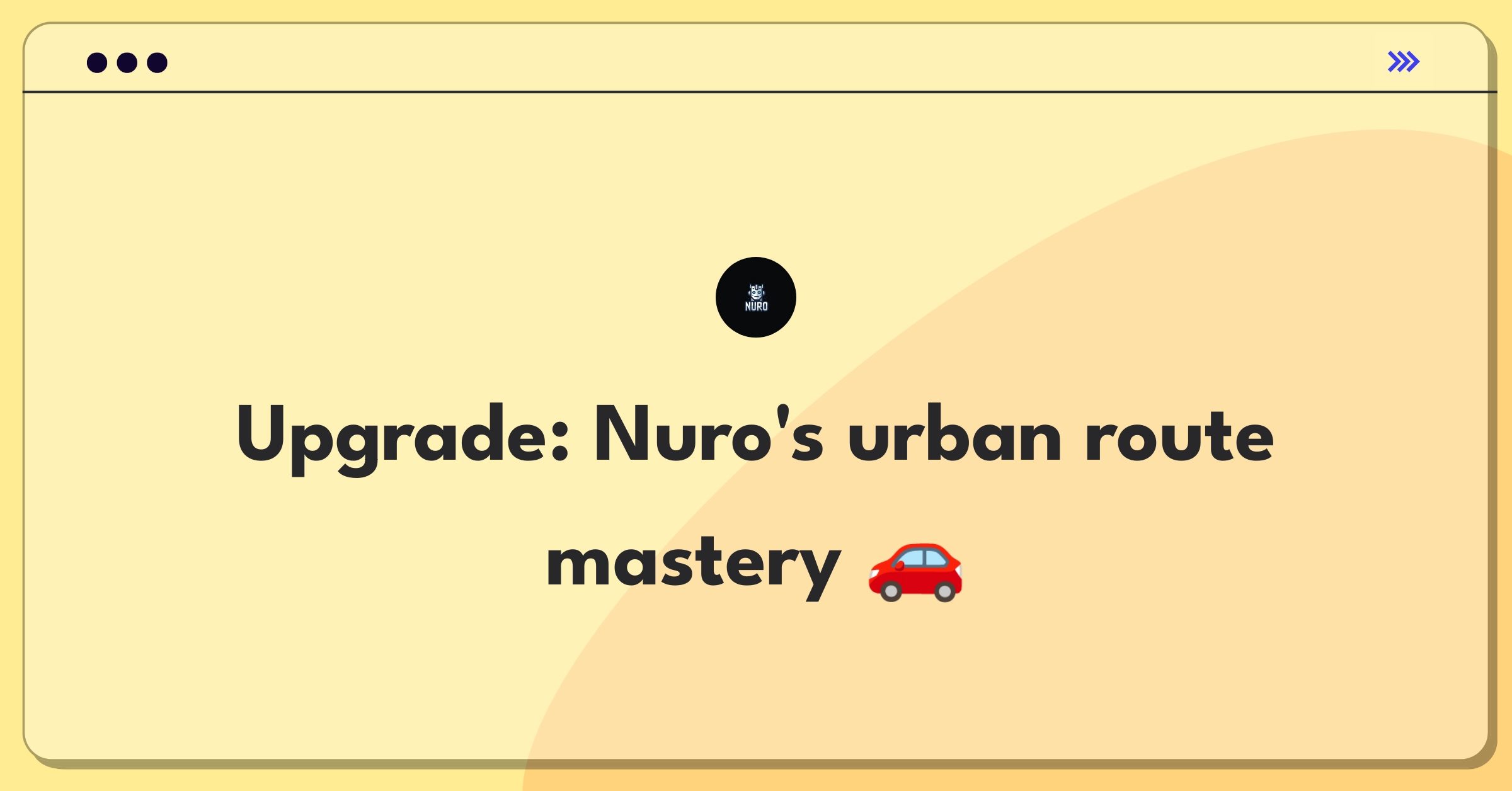Introduction
Optimizing Nuro's route planning algorithm for increased delivery efficiency in urban areas is a critical challenge that could significantly impact the company's operational effectiveness and customer satisfaction. This problem touches on several key aspects of Nuro's business model, including logistics optimization, resource allocation, and urban mobility. I'll approach this question systematically, focusing on understanding the current state, identifying pain points, and proposing data-driven solutions.
Step 1
Clarifying Questions
Why it matters: This information helps us understand the potential impact of optimization and whether we should focus on per-vehicle efficiency or fleet-wide improvements. Expected answer: 100-200 vehicles, with an average of 20-30 deliveries per day per vehicle. Impact on approach: A smaller fleet would lead us to focus on individual vehicle optimization, while a larger fleet might prioritize system-wide coordination.
Why it matters: Different urban environments present unique challenges for route planning, such as traffic patterns, parking availability, and delivery point accessibility. Expected answer: Operations primarily in mixed urban environments, including both city centers and suburban areas. Impact on approach: A diverse operational environment would require a more flexible and adaptable algorithm, potentially incorporating machine learning to handle varied conditions.
Why it matters: This information helps us understand the baseline efficiency and identifies opportunities for further automation or human-AI collaboration. Expected answer: 70% automated with 30% human oversight for complex scenarios or last-minute changes. Impact on approach: Higher human involvement would suggest focusing on improving the AI's decision-making capabilities, while a highly automated system might benefit more from fine-tuning and edge case handling.
Why it matters: Understanding Nuro's relative performance helps us set appropriate optimization goals and identify areas where we can gain a competitive edge. Expected answer: Nuro is more efficient than traditional services in some metrics (e.g., fuel efficiency) but lags in others (e.g., deliveries per hour). Impact on approach: This would help us prioritize which aspects of the route planning algorithm to focus on for maximum competitive advantage.
Tip
At this point, you can ask interviewer to take a 1-minute break to organize your thoughts before diving into the next step.
Subscribe to access the full answer
Monthly Plan
The perfect plan for PMs who are in the final leg of their interview preparation
$66.00 /month
- Access to 8,000+ PM Questions
- 10 AI resume reviews credits
- Access to company guides
- Basic email support
- Access to community Q&A
Yearly Plan
The ultimate plan for aspiring PMs, SPMs and those preparing for big-tech
- Everything in monthly plan
- Priority queue for AI resume review
- Monthly/Weekly newsletters
- Access to premium features
- Priority response to requested question


.png)